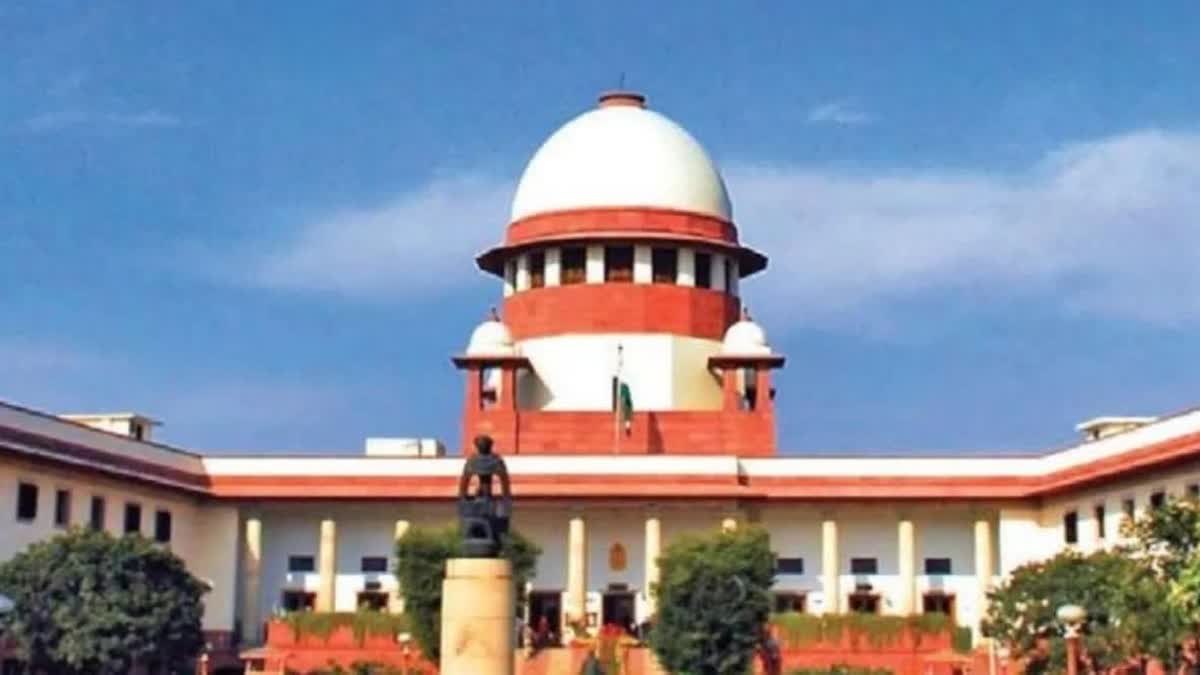New Delhi: The Supreme Court has said that the remission board should not entirely rely either on the presiding judge, or the report prepared by the police, and it would serve the ends of justice if the appropriate government seeks a report contemporaneously prepared by a qualified psychologist after interacting/interviewing the convict applying for premature release.
For premature release, the top court observed that the government should consider jail conduct -- whether the convicts were engaged in any socially aimed or productive activity -- and the overall development as a human being. A bench comprising justices S. Ravindra Bhat and Prashant Kumar Mishra said, “If a stereotypical approach in denying the benefit of remission, which ultimately results in premature release, is repeatedly adopted, the entire idea of limiting incarceration for long periods (sometimes spanning a third or more of a convict’s lifetime and in others, result in an indefinite sentence), would be defeated”.
The top court said the government could review the convict’s age, state of health, familial relationships and possibility of reintegration, extent of earned remission, and the post-conviction conduct including, but not limited to – whether the convict has attained any educational qualification whilst in custody, volunteer services offered, job/work done, jail conduct, whether they were engaged in any socially aimed or productive activity, and the overall development as a human being.
The apex court made these observations while considering a plea by one Rajo whose application for premature release was rejected twice by the remission board. The petitioner is currently serving a sentence of life imprisonment for the murder of three persons – two of which were police personnel (dafadars). He was convicted with three other co-accused on May 24, 2001.
The petitioner moved the apex court challenging the Patna High Court order, which dismissed his plea for non-prosecution. Justice Bhat, who authored the judgment on behalf of the bench, said this could result in a sense of despair and frustration among inmates, who might consider themselves reformed– but continue to be condemned in prison.
Also read: SC adjourns case on premature release of Anand Mohan till September 26
Justice Bhat said, “The Board (remission board) thus should not entirely rely either on the presiding judge, or the report prepared by the police. In this court’s considered view, it would also serve the ends of justice if the appropriate government had the benefit of a report contemporaneously prepared by a qualified psychologist after interacting/interviewing the convict that has applied for premature release”.
The top court noted that the record clearly indicates that the reason for rejection of the petitioner’s application, is the adverse report submitted by the presiding judge in the first round, which was perfunctorily relied upon and reiterated in the report submitted by the then presiding judge in the second round as well.
“Both the reports submitted by the presiding judges (at the relevant time), demonstrate a casual opinion, based solely on the judicial record which presumably consisted of the finding of guilt, by the trial court and High Court”, said the bench. Justice Bhat said this offers only a dated insight on the petitioner, one that has limited opportunity to consider the progress the convict has made in the course of serving his sentence.
“Yet, the Remission Board has privileged the presiding judge’s opinion over the other authorities – like the Probation Officer, and Jail authorities, who are in a far better position to comment on his post-conviction reformation – offering a cautionary tale”, said justice Bhat. The bench said in this court’s considered view, “overemphasis on the presiding judge’s opinion and complete disregard of comments of other authorities, while arriving at its conclusion, would render the appropriate government’s decision on a remission application, unsustainable”.
The bench said the “discretion that the executive is empowered with in executing a sentence, would be denuded of its content, if the presiding judge’s view – which is formed in all likelihood, largely (if not solely) on the basis of the judicial record – is mechanically followed by the concerned authority”. “Such an approach has the potential to strike at the heart, and subvert the concept of remission – as a reward and incentive encouraging actions and behaviour geared towards reformation – in a modern legal system”, said the bench.
The bench said post-conviction conduct, particularly, resulting in the prisoner’s earned remissions, their age and health, work done, length of actual incarceration, etc., rarely fall within the said judge’s domain. The top court said that earlier cases of conviction (such as the present one - in 2001), have an “even lesser probability of a judicial record which reflects consideration of such multi-dimensional factors at the sentencing stage; the lack of which should not serve as an obstacle to the convict seeking release (after serving almost two decades, or more), erasing the reformative journey they may have undertaken as a result of their long incarceration”.
The top court said it has been repeatedly emphasized that the “aim, and ultimate goal of imprisonment, even in the most serious crime, is reformative, after the offender undergoes a sufficiently long spell of punishment through imprisonment”. The top court said: “it would be appropriate if the Remission Board reconsidered the petitioner’s application for remission afresh, considering the reports of the police and other authorities, the post-prison record of the petitioner, the remissions earned (including that which is earned for good conduct) his age, health condition, family circumstances, and his potential for social engagement, in a positive manner”.
In the judgment delivered on August 24, the top court said: “Given the long period of incarceration already suffered by the writ petitioner and his age, the Remission Board should endeavour to consider the application at the earliest and render its decision, preferably within three months from the date of this judgment”.
Justice Bhat said a copy of this judgment shall be marked by the registry of this court, to the Home Secretary, Government of Bihar, who is the chairperson of the Remission Board, as well as the concerned presiding judge, through the registrar, High Court of Judicature at Patna High Court.



